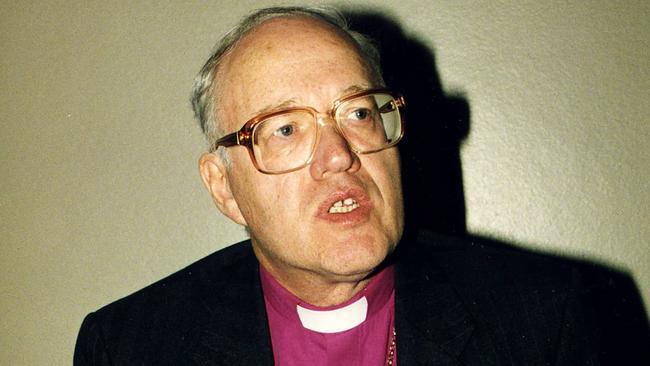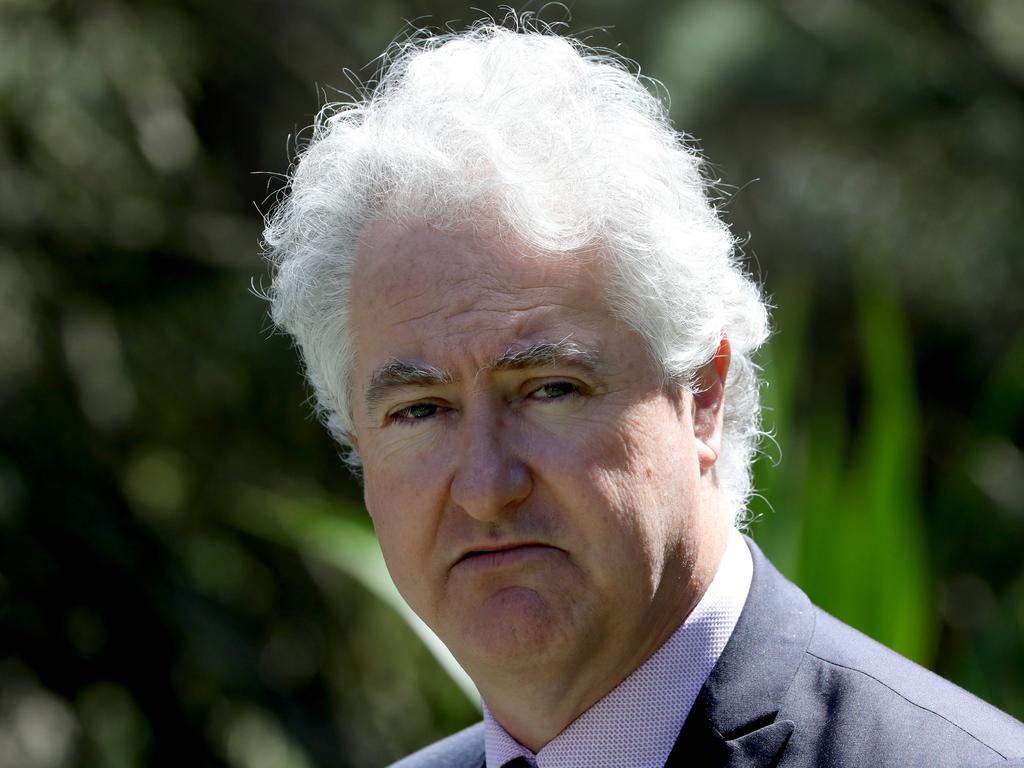Former archbishop George Carey champions NSW vote for euthanasia
A former archbishop of Canterbury has written to every member of the NSW upper house urging them to vote for voluntary assisted dying this week.

A former archbishop of Canterbury has written to every member of the NSW upper house urging them to vote for voluntary assisted dying this week in a dramatic bid to counter strong opposition to the proposed law from some faith leaders and MPs.
George Carey, now a member of the House of Lords, told The Australian that attempts by opponents of the bill to deny assisted dying to the residents of aged-care homes run by Catholic and Anglican bodies would be “cruel, monstrous, unethical and un-Christian”.
The unprecedented intervention by the former archbishop comes as MPs opposed to the law are poised to introduce “hostile amendments” to slow the passage of the legislation on Wednesday, after the Legislative Council voted last week to support the second reading of the bill by 20 to 17.
The leaders of Australia’s Catholic, Anglican, Baptist and Presbyterian churches – along with those of Muslim and Jewish communities – have largely opposed the bill.
However, in a letter obtained by The Australian, Lord Carey tells MPs there is “a considerable gulf between the leadership of churches and the views of many in the congregations”, a reference to opinion polls in both Britain and Australia that show most Christians back voluntary euthanasia.
An Australia Institute poll last July found 64 per cent of Catholics and 79 per cent of Anglicans in NSW supported legalising assisted dying.
One of the major sticking points for opponents of the bill is that it allows VAD for residents of aged-care centres, many of which are run by religious bodies.
Catholic Health Australia has 8000 residents in aged care and another 14,000 “home care consumers” in NSW. The Anglican church’s Anglicare has 2300 residents and more than 4000 in-home community care packages in the state.
Catholic Health Australia says it will not take part in VAD and any residential centre should be allowed to transfer a person wanting it out of the home.
Supporters of the bill say many elderly people regard their aged-care centre as their only real home, having been encouraged in that belief by providers.
Lord Carey told The Australian that “no care home should take such control of a mature, rational person in full command of his or her faculties that the person’s rights are taken away”.
“That would be cruel, monstrous, unethical and un-Christian. Dogma should never trump compassion, and an individual’s autonomy to choose how he ends his life should always dominate,” he said.
The 86-year-old Lord Carey of Clifton remains conservative on many social issues, including gay marriage, but changed his view on assisted dying in 2016 and co-founded a campaign with the late Archbishop Desmond Tutu for the right of the terminally ill to end their lives in dignity.
“It is not my intention to interfere in a matter that properly belongs to Australian citizens, but I write as a former archbishop of Canterbury who has had a radical change of heart on assisted dying,” Lord Carey told MPs.
The Archbishop of Canterbury, Justin Welby, has opposed assisted dying and it remains illegal in Britain.
Lord Carey said advances in medicine that had greatly lengthened life had led to many instances of prolonged, painful and unhappy deaths, with some Britons having to go to Switzerland “to help them seek a tranquil end to their lives”.
“I have to question therefore why so many religious leaders reject the concept of a ‘good death’, by which those who are certainly at the end of life as a result of terminal illness are assisted to die well rather than in terrible prolonged pain and indignity.”
Even the best palliative care could not deal with many instances of pain and suffering, he said.
“Christian believers should not fear death and should not cling to it at any cost. We know that it is not the end.”
If enshrined into law, the bill will bring NSW in line with other states in legalising voluntary assisted dying for people with incurable medical conditions who have less than six months to live or 12 months for a neurodegenerative disease.







To join the conversation, please log in. Don't have an account? Register
Join the conversation, you are commenting as Logout